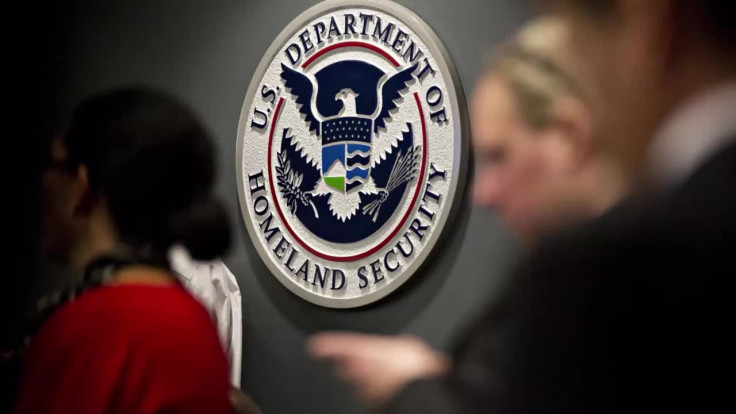New DHS Task Force Scours International Student's Social Media For Potential Grounds To Revoke Visas
A new DHS task force is using data analytic tools to scour the social media histories of the estimated 1.5 million foreign students in the U.S., report reveals.

A new Department of Homeland Security task force is using data analytic tools to scour the social media histories of the estimated 1.5 million foreign students studying in the United States for potential grounds to revoke their visas. The move is being criticized by immigration-law and free-speech experts, arguing the government could use it to target political speech it dislikes.
Among the speech being looked out for by the new task force is what the agency deems to be antisemitic activity on social media and "physical harassment of Jewish individuals" as grounds to revoke or deny immigration benefits.
"This will immediately affect aliens applying for lawful permanent resident status, foreign students and aliens affiliated with educational institutions linked to antisemitic activity," the announcement said.
The new guidance, effective immediately, affects immigrants applying for lawful permanent residence, foreign students and immigrants "affiliated with educational institutions linked to antisemitic activity," the agency said. Social media content that indicates an immigrant is "endorsing, espousing, promoting, or supporting antisemitic terrorism, antisemitic terrorist organizations, or other antisemitic activity," will negatively impact their immigration application.
"There is no room in the United States for the rest of the world's terrorist sympathizers, and we are under no obligation to admit them or let them stay here," Tricia McLaughlin, the Department of Homeland Security's assistant secretary for public affairs, said in a statement. Homeland Security Secretary Kristi Noem "has made it clear that anyone who thinks they can come to America and hide behind the First Amendment to advocate for anti-Semitic violence and terrorism— think again. You are not welcome here."
The data analytic tools now being used to scour social media were enhanced during the Biden administration, a former Biden administration DHS official told NBC News. But to use them to search social media of nonviolent students, the official said, is different from what the previous administration intended.
"We were not targeting political activity or speech. We would only review them if they were inciting violence," the former Biden administration official said.
The tools the DHS task force is using are run by Customs and Border Protection's National Targeting Center and National Vetting Center, both of which are typically tasked with using software and data to keep potential security threats from entering the United States. Any potential red flags about a student are shared with Citizenship and Immigration Services, which in turn ask the State Department to make a determination about whether the student's visa should be revoked.
If the State Department decides it should be revoked, the task force informs ICE agents in local field offices to arrest and deport the student, the sources said.
Before the task force was created, much of the investigative work would have been done at the field office level and shared with local ICE officers, the sources said. Now, according to NBC News, agents are taking orders from people they may not know from the task force in Washington about whom to arrest without clear guidance about why they are being arrested.
DHS has revoked visas for nearly 300 international students over the last month, according to media reports and universities that have reviewed their systems.
The latest policy regarding anti-semitism has raised eyebrows of free-speech experts, who denounce it could be used for potential abuse.
"When they say 'antisemitic activity,' a lot of activity can be considered protected expression because they're not being particularly clear about what's the interpretation of the word here," Tyler Coward, lead counsel for government affairs at the Foundation for Individual Rights and Expression told The Washington Post.
The policy is a "big swing" for a country where free speech is safeguarded, Coward said. "We are a country where we don't punish people for expression. At least, we used to be."
Originally published on Latin Times
© Latin Times. All rights reserved. Do not reproduce without permission.





















